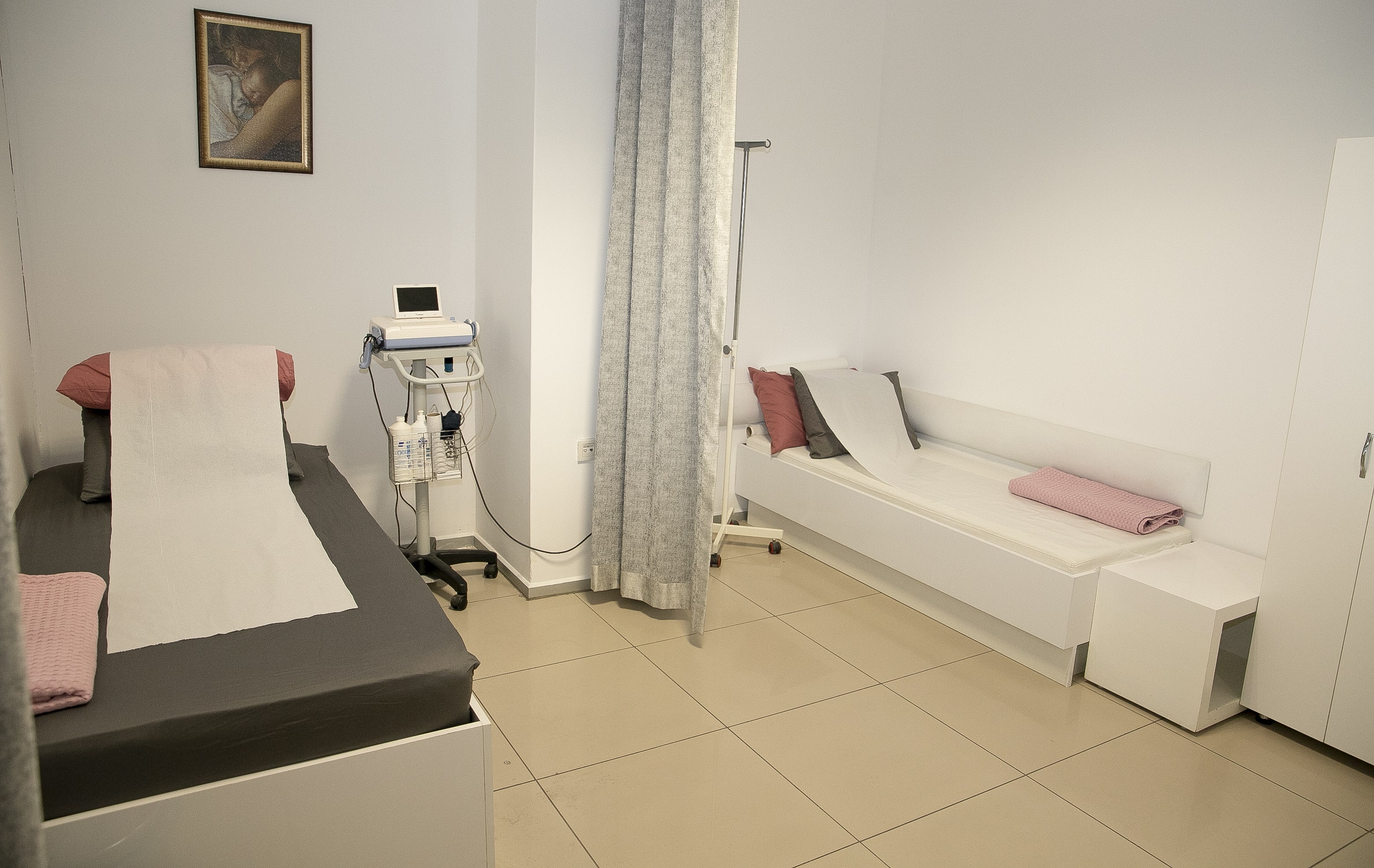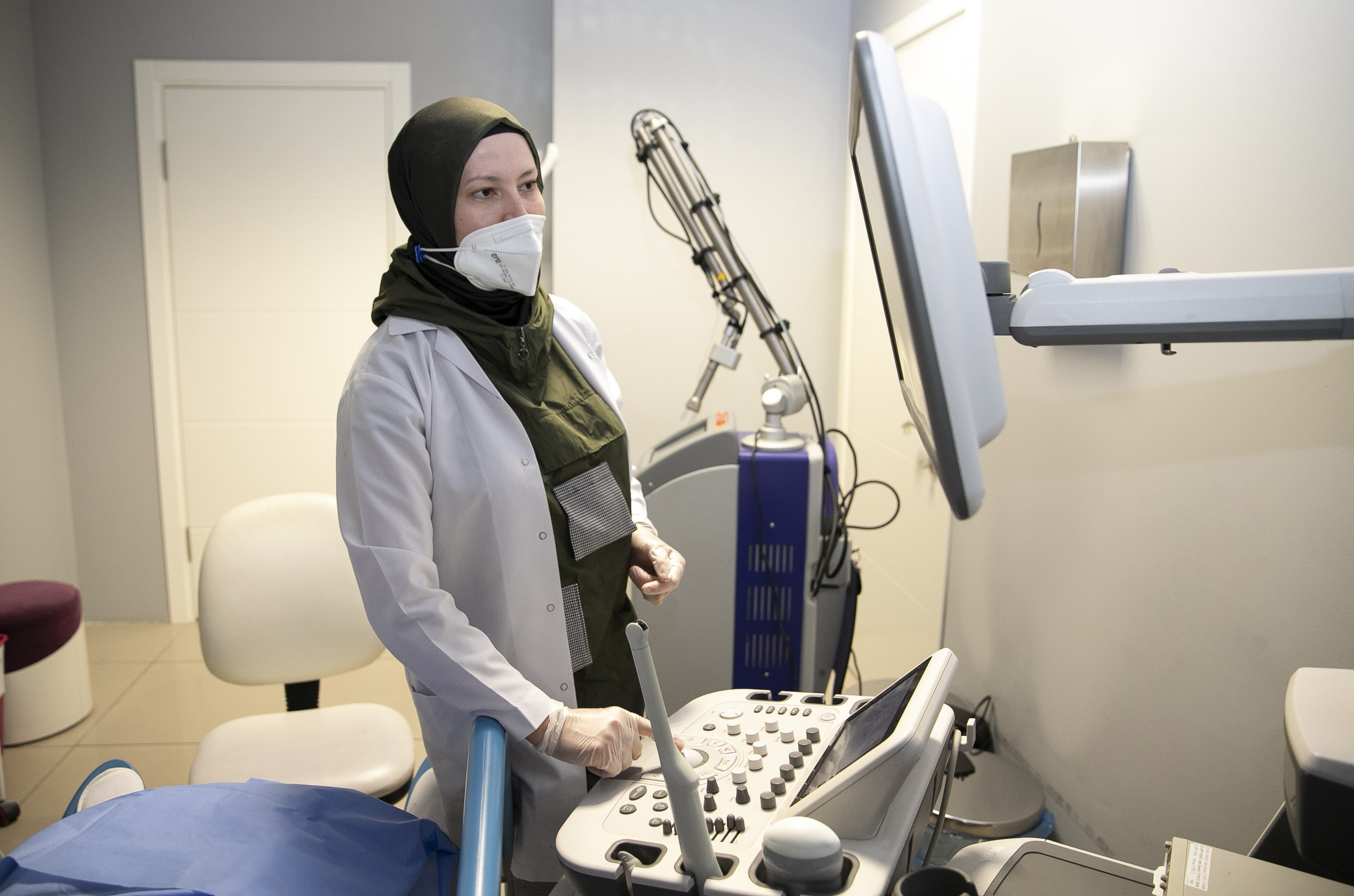What is Vaginismus?
Sexual dysfunctions are situations that people cannot easily express and hesitate to ask for help. However, the disorders that undermine sexual life do not only cause physical distress to the person; It can damage relationships, marriages, and lead to loss of self-confidence and psychological problems.
One of the common sexual disorders in women is vaginismus. Vaginismus, which causes painful sexual intercourse, is a disease that can be treated with different approaches.
What is Vaginismus?
Vaginismus, with a prevalence of 5-17% in the community, is a sexual dysfunction that occurs due to involuntary contractions of the muscles at the entrance of the vagina. Vaginismus causes sexual intercourse not to occur at all or to be difficult and painful.
Vaginismus should not be confused with sexual reluctance. In this disorder, the woman feels sexual desire, but involuntary contractions cause the sexuality to not be experienced as desired.
Vaginismus is often a mental illness. If it is not treated, it causes problems in the relationships and marriages of the couples from the first night.
What Causes Vaginismus?
There are many different causes of vaginismus. We can consider the most common causes of this disorder in two groups as psychological and physiological.
Psychological reasons:
First night fear
Stress and anxiety
Being exposed to traumatic events such as sexual harassment, abuse, violence
Misconceptions about sexuality
Incompatibility between spouses
Physiological reasons:
Physical traumas
Vaginal infections
Traumatic births, abortion-like gynecological procedures
Vulvar vestibulitis disease
Due to the loss of moisture and elasticity of the vagina during menopause, the pain felt during sexual intercourse turns into vaginismus over time.
The vagina is shorter than normal
Having a curtain in the vagina
Structural disorders of the hymen. E.g; being thicker and harder than normal, having high edges, etc. like…
Bartholin's cyst and abscess
Pelvic inflammatory disorders
What Are the Symptoms of Vaginismus?
The main symptom of vaginismus is contraction during sexual intercourse. Other symptoms are:
Feeling pain during sexual intercourse (dyspareunia)
Failure or very difficult sexual intercourse due to contractions and pain
Pain during gynecological examination
Inability to use tampons due to pain.
Diagnosis and Treatment of Vaginismus İzmir
In order to handle vaginismus treatment correctly, the diagnosis must be made correctly. First of all, the gynecologist listens to the patient's story; then performs a simple gynecological examination. The diagnosis is made at the end of the gynecological evaluation.
Vaginismus is a disease with treatment. However, in order for the treatment to be successful, the causes of the disease must be well identified.
If the patient has different problems such as anxiety, extreme stress, and depression accompanying his physiological problems, treatment should be performed with a multi-disciplinary approach. In such cases, gynecologists make sure that the psychological source of the problem is also treated by referring their patients to a psychologist or psychiatrist according to the case.
After the gynecological examination, if vaginismus is caused by the hymen being harder and thicker than normal, this situation can be intervened with a simple surgical procedure.
Botox application is an effective method in the treatment of vaginismus. Within the scope of the application, bottox is injected into the vaginal muscles. Botox allows the vaginal muscles to relax and the patient does not experience involuntary contractions during sexual intercourse. During the period when the effect of Bottox continues, patients realize that sexual intercourse can take place without pain, and they have a chance to get rid of their anxieties on this issue. Studies show that vaginismus does not recur in many patients even after the effect of bottox wears off.
Another method is pelvic floor exercises. With exercises, muscle control is improved in the area. Exercises to be performed with the knowledge and recommendation of the doctor, especially Kegel exercises, help to eliminate involuntary contractions during sexual intercourse.
Dilatation therapy, which aims to give flexibility to the vaginal muscles, is another method. It can be defined as the application of a vaginal expander device under the guidance of an expert. It is a type of treatment that patients do not prefer and do not feel comfortable. Do not hesitate to ask for help.
Sexual dysfunctions can affect patients both personally and damage their relationships. Patients should know that they do not have to live with this type of ailment.
It should not be forgotten that vaginismus is a treatable condition and a specialist should be consulted for help.




 Türkçe
Türkçe  English
English  Deutsch
Deutsch  فارسی
فارسی 






